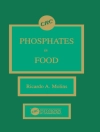This book covers important topics on various neglected and underutilised crops (vegetables, cereals, fruit crops). It gives an overview of the potential, availability of genetic and genomic resources, and the future prospects of these food crops. The book presents different chapters on the importance of underutilised crops with respect to sustainable agriculture and describes the approaches that must be followed for improving the yield and production of these crops. It covers a wide range of food crops such as millet, buckwheat, underutilised spices, underutilised vegetables and underutilised fruit crops. It also provides insights on what smart foods are? And, whether these neglected crops qualify as smart foods?
This up-to-date and informative book is meant for food scientists, geneticists, breeders and biotechnologists. It is of interest to students, researchers and course instructors in these fields.
Содержание
Chapter 1: Neglected and Underutilised Crop Species: Are They Future Smart Crops in Fighting Poverty, Hunger and Malnutrition under Changing Climate?.- Chapter 2: Neglected and Underutilized crops: Present status and Future Prospectus.- Chapter 3: Germplasm resources of major underutilized crops.- Chapter 4: Underutilized vegetable species of Indian Himalayas.- Chapter 5: Nutritional and Medicinal values of Neglected spice crops of Indian Himalayas.- Chapter 6: Genetics and genomics resources of millets: Availability, advancements and applications.- Chapter 7: Genomic approaches for the improvement and conservation of Buckwheat.- Chapter 8: Genetic and Genomic Resources of Chestnut.- Chapter 9: Genetic and Genomic Resources in Rice bean (
Vigna umbellata Thunb.): Availability, Advancements and Applications.- Chapter 10: dvancements in high-throughput omics-technologies for understanding the biology of neglected and underutilized crops.- Chapter 11: Understanding the barriers of underutilization and applicability of biotechnological tools for augmenting spice crop production.
Об авторе
Sajad Majeed Zargar, Ph.D, is an Assistant Professor at Sher-e-Kashmir University of Agricultural Sciences & Technology of Kashmir (SKUAST-Kashmir) in India and visiting Professor at University of Padova, Italy. He was previously a Visiting Professor at the Nara Institute of Science & Technology, Japan. He has worked as an Assistant Professor at SKUAST-Jammu and Baba Ghulam Shah Badshan University, Rajouri (BGSB) in India. He has also worked as scientist at Advanta India Limited, Hyderabad, India and TERI (The Energy & Resources Institute), New Delhi, India. Dr. Zargar is recipient of CREST oversea’s fellowship from DBT, India; Goho grant from Govt. of Japan and Erasmus Fellowship from European Union. He has received several awards for his work and research and is receipt of young research grant from SERB-DST, India. He is also the member and representative of INPPO (International Plant Proteomics Organisation). Dr. Zargar has established well equipped Proteomics Laboratory at Division of Plant Biotechnology, SKAUST-Kashmir to undertake basic plant proteomics research. He has chaired a session in 3rd INPPO, World Congress held at University of Padova, Italy in 2018. His editorial activities and scientific memberships include publishing research and review articles in international journals and as a reviewer. He has been affiliated with several internationally reputed journals and is also reviewer of reputed journals Journal of Advanced Research, Frontires in Plant Science, 3 Biotech, Scientia Horticulture, Methods in Ecology and Evolution, Australian Journal of Crop Science and many others.
Antonio Masi, Ph.D, is an Associate Professor at DAFNAE – Department of Agronomy Food Natural Resources Animals and Environment, University of Padova, Italy. Following studies in Agricultural Sciences and a Ph D in Photobiology at the University of Padova, he carried out studies at the Pflanzen Physiologisches Institut in Bern, Switzerland (1990), and at the Department of Plant Biology, University of California at Berkeley (1994-95) in the field of plant molecular biology, plant physiology and biochemistry. Recipient of a Fulbright grant for research in plant proteomics (2004) at Cornell University, Ithaca-NY. Visiting professor at Tribhuvan University (2010) in Kathmandu and Pokhara, Nepal, within the European programme ‘Sutrofor’ — Sustainable Tropical Forestry. His research activity has mainly focussed on oxidative stress and antioxidants in plants; plant abiotic stress in crops, plant sulphur metabolism and plant thiols; functions of gamma-glutamyl transferase in glutathione transport and degradation; biological effects of humic substances and biostimulants; comparative plant proteomics and application of proteomics in agricultural and food science; factors affecting the uptake and distribution ofpersistent organic pollutants in plants. Romesh Kumar Salgotra, Ph.D, is a Professor and Coordinator, at the School of Biotechnology at Sher-e-Kashmir University of Agricultural Sciences & Technology of Jammu (SKUAST-Jammu) in India. Dr. Salgotra received his Ph.D. in Plant Breeding & Genetics in 1999 from CSK Himachal Pradesh Krishi Vishwavidyalaya, Palampur, India. He was previously an Endeavour Executive Fellow of Queensland Alliance for Agriculture and Food Innovation (QAAFI) at the University of Queensland, Australia. He has worked in different capacities as Junior Scientist and Senior Scientist at SKUAST-Jammu under All India Co-ordinated Rice Improvement Project, National Rice Research Institute (NRRI), Hyderabad and
Central Research Institute for Dryland Agriculture (CRIDA), Hyderabad, India. He has also worked as Agriculture Extension Officer in Govt. of Jammu & Kashmir, India. Dr. Salgotra is recipientof BOYSCAST Fellowship, Tennessee University, USA. He was awarded with prestigious Norman E. Borlaug Fellowship by United State Agriculture Development (USDA) during 2015. He has participated in Genetic Resources and Intellectual Property Rights Programme (GRIP) under Swedish International Development Agency (SIDA), Sweden and Followup programme at Pretoria, South Africa. He has received several awards for his work and research. He was the member and representative of Global Forum for Innovative Agriculture (GFIA), Abu Dhabi, UAE. Dr. Salgotra was also one of the member of delegation in Joint Committee on Science and Technology, Govt. of India held at Belgrade, Serbia in 2017. He has chaired a session in International Association of Science & Technology Development for Computational Bioscience held at Cambridge, Massachusetts, USA. He has more than 50 peer reviewed publications and has delivered numerous oral and poster presentations in national and international meetings/conferences. He has been affiliated with several internationally reputed journals and is also reviewer of reputed journals
Scientific Reports, Plos One, Plant Cell Reports, BMC Genetics, Rice Science, Journal of Integrative Agriculture, Australian Journal of Crop Science, SABRAO and many others.












